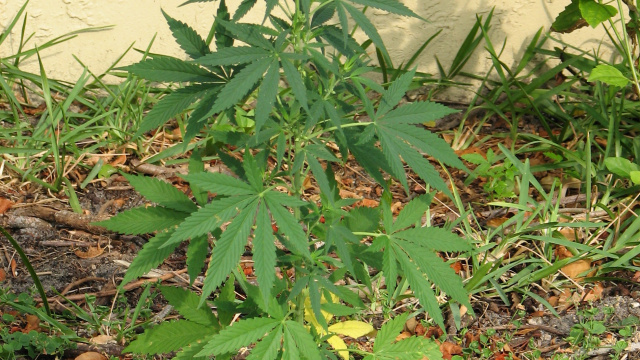 My 9-year-old daughter has Aicardi syndrome, a rare genetic disorder that causes extremely hard-to-control seizures, debilitation, disability and early mortality. She began having seizures at three months of age, and since that time has had multiple seizures every day, with rare exception — probably to the tune of nearly 200,000 seizures in her lifetime.
My 9-year-old daughter has Aicardi syndrome, a rare genetic disorder that causes extremely hard-to-control seizures, debilitation, disability and early mortality. She began having seizures at three months of age, and since that time has had multiple seizures every day, with rare exception — probably to the tune of nearly 200,000 seizures in her lifetime.
For most families, even one such day would be an emergency. For ours, it is the norm.
My daughter is a beautiful, loving girl who goes to school, enjoys music and parks, loves to be read to and adores looking at big, modern art in museums. She cannot walk independently, cannot talk and wears diapers. Every day she is at risk of Sudden Unexpected Death in Epilepsy, or SUDEP, which accounts for 34 percent of all sudden deaths in children.
She is one of the 3 million Americans who have epilepsy, and one of the 40 percent whose seizures cannot be controlled by anti-seizure drugs. She has tried 10 anti-seizure medications as well as a high-protein/low-carbohydrate diet called the ketogenic diet; she takes three anti-seizure medications at once and has a vagus nerve stimulator implant that sends mild electrical pulses to the brain. These drugs help her, but she nonetheless experiences an average of three seizures every day. Moreover, the medications cause persistent side effects that negatively impact her quality of life, particularly her gastrointestinal, bone, dental, cognitive and mental health.
The Illinois Senate Executive Committee recently voted, 10-5, to move the House-passed medical marijuana legislation to the Senate for a vote. The bill is expected to pass, and though Gov. Pat Quinn has not committed to signing it, the general expectation is that the bill will become law. This should be received as great news for the many people with “debilitating” conditions that the bill is supposed to help — people for whom medical science has documented real, measurable and safe outcomes of the controlled use of cannabis or its component of chemical compounds.
It’s too bad that the legislature has ignored the medical needs of some of the most debilitated, and most vulnerable, patients in the state: children with epilepsy.
Imagine her father’s and my reaction upon learning that the legislature, in its concern not to send a “message” to kids that it is safe to smoke marijuana, decided that kids like ours, for whom medical cannabis has the potential to be as safe and effective as typical anti-seizure drugs, should be excluded from the benefits of this new law.
They have done so, I hope, only out of ignorance. Take, for instance, the parent survey conducted by Stanford University neurology researcher Dr. Catherine Jacobson. These parents had children with some of the most difficult-to-treat syndromes of epilepsy found in children: Dravet syndrome, Doose syndrome and Lennox-Gastaut syndrome. All of the kids were being treated with a nonpsychoactive compound made from cannabis — cannabidiol. Their parents report remarkable results — 83 percent noted that their children’s seizure frequency had been reduced.
Two-thirds of these children achieved a greater than 80 percent reduction in seizure incidence. Seventy-five percent of the parents reported success in weaning their kids from other ASDs; a similar proportion noted improved sleep, mood and alertness in their children. Most important, the survey’s author notes that common negative side effects reported on other ASDs were notably absent on cannabidiol, including rash, vomiting, nausea, confusion, insomnia, anxiety, irritability, dizziness and aggressive behavior.
There is no likelihood that my daughter will become a drug addict from using a compound within cannabis in a medically controlled setting. There is, however, a good chance that participation in a controlled study of these compounds could open the door to new treatments for her, and the many children like her, who desperately need medical innovation to save or improve their lives.
I urge the bill’s chief sponsors, Rep. Lou Lang, D-Skokie, and Sen. William Haine, D-Alton, to reconsider and amend the bill to allow for the medically controlled and regulated use of cannabis for pediatric and adult patients with uncontrolled epilepsy. And to all Illinoisans who know or love someone with epilepsy, please let your legislators hear your voice on this matter.
Margaret Storey lives in Evanston.
Source: Chicago Tribune (IL)
Author: Margaret Storey
Published: May 15, 2013
Copyright: 2013 Chicago Tribune Company, LLC
Website: http://www.chicagotribune.com/



Leave a Reply